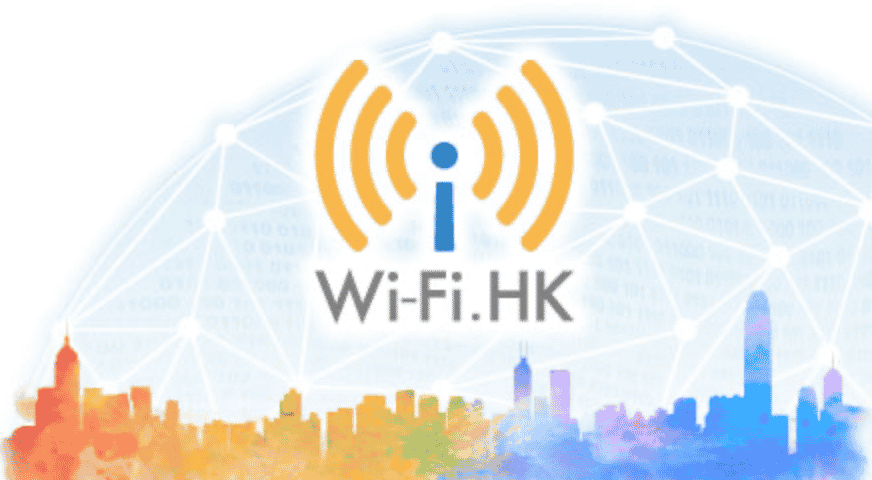"Governance and Political System" Thematic Research Series
Electronic government (e-G overnment) generally refers to the government's use of Internet and information communications and other technologies to digitize government work, including the transmission of information and the provision of public services. Effective e-government services can enhance government performance, help the public establish a good impression of the government, and provide favorable conditions for the government to maintain high-quality governance.
In Hong Kong, the SAR government has launched a number of e-government development plans since its establishment. By the end of 2017, various policy bureaux or departments provided more than 840 electronic services to the public.
A survey by the Census and Statistics Department shows1, among Hong Kong people aged 15 – 24 and 25 – 34, respectively, 73.4 % and 77.3 % have used online government services for personal matters. In other words, among the young people in the above two age groups, there are still 26.6 % and 22.7 % who have not used it respectively.
According to a survey conducted by Japan's Waseda University E-Government Research Institute, Hong Kong has only been ranked in the middle of the pack in terms of e-government development in recent years, including ranking 24th in 2015, 2016 and 2017. It was among the top ten in the early years. There is a significant difference in the results.
Building smart cities is a priority of the current SAR government. E-government services are an important foundation for the development of smart cities. Young people are in the e-generation and are no strangers to the Internet and mobile technologies. This study refers to the experience of e-government in other regions to understand the experience of the new generation in using government e-services from the perspective of young people. Through interviews with experts and scholars, it hopes to provide feasible suggestions on promoting the e-services of the SAR government; it is believed that this will help to establish and maintain good governance of the SAR Government.
This study collected data from February to March 2018 through several aspects, including a youth online opinion survey. A total of 648 young people aged 18-34 were interviewed, 30 young people participated in focus group interviews, and 4 experts and Scholar visits.
Main results of the study
- The young people surveyed have demands for government electronic services, and nearly 40% (39.4 %) value the principle of simplicity and ease of use. More than 35% (35.7 %) believe that effective e-government services will help increase their contacts with the government.
- More than 70% (71.1 %) of the young people surveyed have used government electronic services in the past 12 months. Among them, nearly 47% (46.8 %) are satisfied with the SAR's e-government services, and 46% (45.8 %) are average. What they are most dissatisfied with is the lack of connections between departments (30.1 %) and the complicated usage steps (28.0 %).
- The young people surveyed have expectations for the SAR government's electronic services. More than 70% of them believe that if the public can know what projects are available (77.2 %) or the government further opens up data (71.7 %), it will help improve the current situation. More than 60% believe that it would be helpful to improve service levels to be in line with those provided by commercial institutions (65.3 %) or allow citizens to participate, such as putting forward opinions (61.4 %).
- However, nearly 32% (31.7 %) of the young people surveyed said they were not confident that Hong Kong would develop into a smart city, which was twice as high as those who expressed confidence (15.5 %).
- The research refers to international surveys, experiences in South Korea, Singapore, the United Kingdom and other places, and conducts focus group interviews with 30 young people. Some young people have a good experience using government electronic services and therefore take the initiative to recommend the services to others; they also appreciate the government's provision of real-time information.
- However, they also encountered some negative experiences. For example, when searching for information on government websites, they felt like they were looking for a needle in a haystack. Inquiries through telephone hotlines or emails were time-consuming and failed to help them solve their problems. Other participants expressed confusion about the SAR government’s electronic service coordination structure.
Research main recommendations
- Establish a high-level leadership structure for e-government and promote the development of e-services from a government-wide perspective.
- Add user-oriented e-service performance measurement indicators to strengthen public supervision.
- Conduct regular data collection to understand public needs for e-government services.
- A chatbot online customer service has been added to answer citizens’ inquiries anytime and anywhere.
- Strengthen training for civil servants in the application of emerging technologies and continue to inject new impetus into electronic public services.



